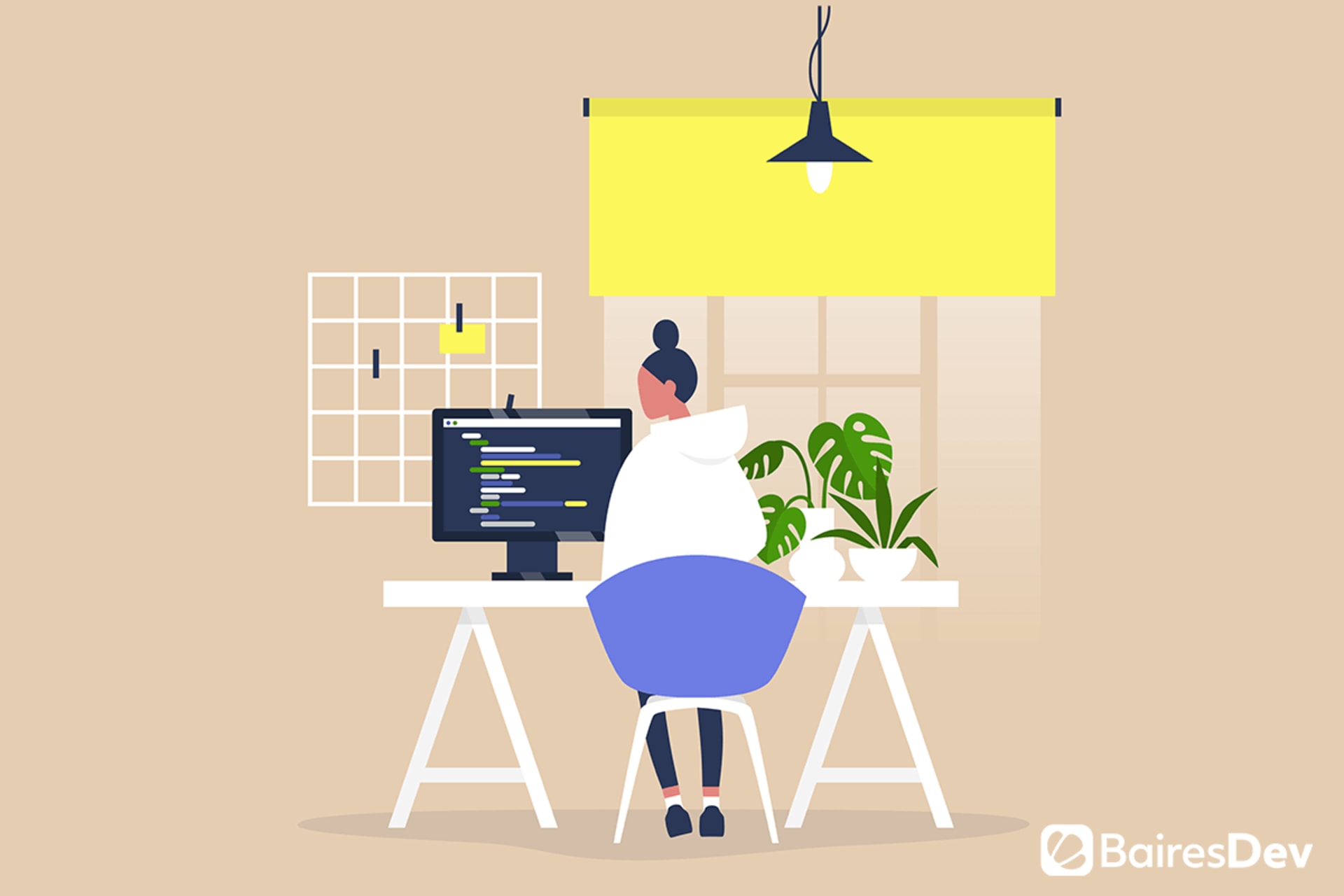Hire Back-End Developers
Our top 1% of tech talent has already undergone a rigorous vetting process. Get bilingual, nearshore Back-End developers on your team within 2 weeks.
500+ companies rely on our top 1% tech talent.
No time to find the top talent yourself? Skip the hassle of recruitment.



The Ultimate Guide for Hiring Back-End Developers
Whether launching a web app, modernizing legacy systems, or scaling enterprise platforms, the back end powers every operation behind the scenes. This means that your software is only as great as the back-end developers who build it.
Yet with so many skills, tools, and technologies in play, hiring the right talent can feel overwhelming. What programming languages matter most? Do they need experience with cloud platforms? Should they work with databases, APIs, and security protocols?
Help is here. With over 1,250 successful projects delivered across 100+ industries, we’ve honed our ability to identify the right skills and traits in back-end developers. Our experience recruiting top talent has given us valuable insights—and we’re here to share them.
From assessing technical expertise to crafting interview questions that uncover what a resume can’t, use this guide to help you hire back-end developers who create robust, future-ready systems.
Before You Start Hiring
Project or Team Requirements
Before you start, consider your project’s technical needs. Are you building a monolithic app, a microservices-based system, or a serverless setup? Does the scope involve real-time data processing, high availability, or heavy user traffic? Each type of project requires different back-end skills.
Niche Experience in Back-End
Back-end developers with niche experience bring specialization to projects. For example, someone with e-commerce experience can optimize databases for fast product searches. A developer with healthcare experience will be more familiar with compliance requirements like HIPAA.
Experience in Your Preferred Methodology
Do your development teams use Agile, Scrum or DevOps processes? Filter candidates by the methodologies used. Why? Someone with Agile experience will be comfortable with sprints and quick feedback loops. Without it, they may struggle with the pace of agile workflows.
Collaborative Mindset
Back-end development doesn’t happen in a vacuum. From troubleshooting API connections with front-end developers to discussing database optimization with DevOps, back-end developers must collaborate. Look for candidates who value open communication, constructive feedback and teamwork.
Communication Skills
Communication goes beyond verbal exchanges and includes clear and detailed documentation. Back-end developers must document their code, APIs, database schemas, and server configurations so other team members can easily understand and maintain the system.
18 Skills Every Back-End Developer Should Have
It takes more than code to build a stable backend. Back-end developers must manage complex workflows, connect multiple systems, and keep communication smooth across every layer.
Skilled developers expertly navigate these challenges so that data flows correctly and systems respond quickly, even under heavy use. Whether it’s fine-tuning database performance or building APIs that handle high traffic, their work is essential to keeping your infrastructure running smoothly.
But technical know-how is only part of the equation. The best developers also proactively solve problems and excel in collaborative environments, where teamwork and quick decisions matter. Next, we’ll take a look look at the technical and soft skills your candidates need to meet the demands of modern back-end development.
Technical Skills to Look for in Your Ideal Back-End Developer
1. Proficiency in Back-End Programming Languages
Know languages like Java, Python or Node.js to build server side logic. Each language has its strengths: Python for data heavy applications, Java for enterprise grade solutions, Node.js for fast scalable services.
2. Database Management and SQL/NoSQL Expertise
Databases store and organize data critical to any application. SQL databases (like MySQL) for structured data, NoSQL databases (like MongoDB) for unstructured data and scalability. Back-end developers should know how to design schemas, write queries and optimize database performance.
3. API Development and Integration
APIs allow different systems to communicate and share data and functionality. Developers build REST or GraphQL APIs for smooth integration between front-end, back end and third-party services.
4. Version Control Systems
Tools like Git and GitHub are used for team collaboration, tracking code changes, and managing versions. So updates and bug fixes don’t break existing functionality.
5. Knowledge of Web Servers and Hosting
Knowledge of servers like Nginx and cloud platforms like AWS to deploy, monitor and maintain web applications so applications are reliable and available to users.
6. Authentication and Security Practices
Implement security measures like OAuth, JWT, and HTTPS to protect data and prevent breaches. Developers should know how to stay ahead of vulnerabilities and fortify applications at every layer.
7. Data Structures and Algorithms
Efficient algorithms and well-chosen data structures for smooth operations. Back-end developers rely on these skills to optimize operations like search, retrieval and sorting for better performance.
8. Cloud Platforms and Services
Platforms like AWS and Azure for scalable infrastructure. Back-end developers use cloud services for distributed systems so high availability and easy expansion as user demand grows.
9. Event-Driven Architecture and Message Brokers
Technologies like Kafka and RabbitMQ for systems to respond in real-time by sending messages between components. Using these tools developers can build responsive applications that handle asynchronous tasks efficiently.
10. Performance Optimization and Caching Techniques
Tools like Redis and Memcached speed up applications by caching frequently accessed data. Developers use these tools to reduce server load and response times. They also tune databases, APIs and code to make sure the system performs well under heavy traffic. This work prevents slowdowns or bottlenecks that can affect user experience.
11. Knowledge of Software Design Patterns
Design patterns like MVC and Microservices provide reusable solutions to common architectural problems. Developers use them to build scalable, maintainable systems that adapt to changing requirements.
12. Testing and Debugging Skills
Writing tests and using tools like Postman or unit testing frameworks ensures that the code behaves as expected. Back-end developers with debugging skills find and fix issues before they affect users.
13. Experience with Asynchronous Programming
Developers use asynchronous programming techniques like Async/Await in JavaScript to make sure applications can handle multiple tasks without blocking the main thread. This is crucial for building responsive real-time systems where performance and user experience are non-negotiable.
14. Knowledge of Containerization and Virtualization
Tools like Docker and Kubernetes allow developers to package applications and dependencies in isolated containers. This ensures consistency across development and production environments, which improves scalability and reliability.
Soft Skills to Look for in Your Ideal Back-End Developer
15. Leadership
A back-end developer with leadership skills keeps the team focused, productive and aligned with project goals. When evaluating candidates, look for those with experience in making architectural decisions, coordinating with front-end development teams and—if the role requires it—mentoring junior developers.
16. Interpersonal Skills
Collaboration is core to back-end development. Look for candidates who can explain technical ideas in simple terms, listen to feedback and adjust their communication style based on the audience. Developers with these skills create a collaborative work environment.
17. Resilience
Backend work involves solving complex, unpredictable problems under tight deadlines. Systems crash, APIs break or unexpected bugs appear during high-traffic events. Look for developers who stay calm under pressure, adapt to changing requirements and solve unscheduled problems.
18. Attention to Detail
Small mistakes can cause big problems—crashes, data loss or security risks. Detail-oriented developers prevent issues and ensure systems run over time. Choose candidates who test their code thoroughly, craft queries and database schemas carefully and proactively address performance issues.
8 Questions to Identify Top Back-End Developers
When interviewing Back-End developers, it's important to ask questions that first assess the candidates' technical skills and knowledge. Employers will also usually conduct a coding test to further assess specific on-the-job knowledge.
The following set of questions aims to uncover not only the developers's technical knowledge but also their problem-solving abilities, teamwork, communication skills, and adaptability—all crucial traits for success in a collaborative environment.
Here are a few examples of technical interview questions:
1. How do you approach troubleshooting and resolving slow database queries in a back-end system?
When a database query is slow, my first step is to analyze the query execution plan. This helps identify bottlenecks like missing indexes, inefficient joins, or excessive table scans. I also check if there are outdated statistics that could lead to suboptimal execution plans. If indexing doesn’t solve the issue, I look into database configuration settings like cache size or I/O performance.
In some cases, I refactor the query logic to reduce complexity. Or I split large queries into smaller transactions to help improve performance. I also test these optimizations in staging environments to make sure they don’t introduce new issues.
2. Can you walk me through how you design and implement an API for high scalability and performance?
I typically use RESTful principles and focus on making the endpoints stateless. I also ensure proper load balancing by distributing requests across multiple servers. This helps to avoid overloading a single instance.
For performance, I minimize payload sizes and use caching layers (like Redis or Memcached). I also implement pagination for large datasets. To ensure scalability, I design the API to be horizontally scalable. This way, we can add more instances as needed. I also test under simulated load conditions to monitor and tweak performance before deployment.
3. How do you ensure data consistency and reliability in distributed systems?
Ensuring data consistency in distributed systems requires a mix of design patterns and best practices. I usually rely on techniques like ACID transactions in relational databases. This is for strict consistency or eventual consistency models when working with NoSQL databases, depending on the use case. I also implement message queues to manage asynchronous data processes and ensure that data across microservices is synchronized.
I leverage distributed tracing and monitoring tools, as well. These help me detect inconsistencies early on and maintain reliability in the system. For critical operations, I implement retry mechanisms and idempotency. These help to ensure the safe repetition of operations without affecting data integrity.
4. How do you handle security concerns when developing back-end systems?
I start by implementing strong authentication and authorization mechanisms. Often, I’ll use OAuth2 or JWT for secure access control. Data encryption is also key. I ensure that sensitive data, both in transit and at rest, is encrypted with SSL/TLS and database encryption techniques. Additionally, I validate all inputs. This prevents injection attacks. I regularly update dependencies to protect against known vulnerabilities, too. Plus, I incorporate security tests into the CI/CD pipeline, such as static code analysis and penetration testing, to catch vulnerabilities early in the development process.
5. How do you optimize the performance of a large-scale back-end system under heavy load?
This question explores the candidate’s understanding of performance-tuning strategies, such as load balancing, caching, database query optimization, and asynchronous processing. It also reveals their ability to identify bottlenecks and apply tools like profilers or monitoring systems to resolve issues proactively.
6. How do you handle database migrations in a back-end system?
This question assesses the candidate’s experience with schema changes, data consistency, and downtime management. It also shows their familiarity with migration tools and strategies—like versioning migrations or rolling updates—while evaluating how they handle challenges like migrating live data without service disruptions.
7. How do you ensure the back-end system is scalable as user traffic grows?
This question evaluates the candidate’s knowledge of scalability techniques, including horizontal and vertical scaling, load balancing, and microservices architecture. It also reveals their understanding of when and how to integrate cloud services or distributed systems so that the application can handle increased demand.
8. Can you explain the role of caching in back-end development and when it’s appropriate to use?
This question checks the candidate’s understanding of performance optimization techniques, such as using Redis or Memcached, and their ability to balance speed with data consistency.
FAQ
What back-end skills are important for web development?
For the back end, web developers need experience in server-side programming (Node.j, Python, or PHP), database design and management (MySQL or MongoDB), API development, and security practices. These skills help developers create web apps that run smoothly, load quickly, and remain reliable under heavy use.
What back-end skills are needed for mobile app development?
Developers working on apps for mobile devices need skills in API development, database management (SQL or NoSQL), and authentication systems (OAuth, JWT, and multi-factor authentication). Knowledge of cloud platforms like AWS or Firebase is also useful for helping them deploy scalable backends. Developers should also be familiar with security practices like encryption and authentication.
What’s the difference between a back-end developer and a full-stack developer?
A back-end developer focuses on the server side, managing databases, APIs, server logic, and security to keep everything running smoothly. A full-stack developer works on both the front end and back end, handling everything from user interfaces to system infrastructure.
While back-end developers specialize in managing data and systems, full-stack developers bring versatility by building and integrating both parts of the application.
What’s the difference between back-end developers and back-end engineers?
While the roles are similar, the focus often differs. A back-end developer concentrates on writing code to build and maintain applications. They focus on tasks like database management, APIs, and server logic. A back-end engineer, on the other hand, takes a broader view. They work on the system’s architecture, infrastructure, and scalability.
Can a software engineer handle back-end development?
Yes, many software engineers have the skills to work on back-end development. While their role covers a wide range of software tasks, they often handle back-end work like building APIs, managing databases, and improving server performance. Their experience in designing scalable systems makes them a strong fit for back-end roles, especially in projects requiring coding and architecture expertise.
What special considerations should I consider when hiring a freelance back-end developer?
When hiring a freelance back-end developer, look for candidates who can manage projects independently and have excellent communication skills. Freelance developers don’t have the same direct access to in-house resources, so it’s important they have experience working remotely and solving problems on their own.
Focus on developers with expertise in the technologies your project requires and who can demonstrate they meet deadlines without close supervision. Don’t forget to set clear expectations for availability, payment terms, and deliverables.
Should a back-end developer have experience with machine learning?
While not required for all roles, experience with machine learning (ML) can be valuable for back-end developers working on data-heavy projects. If your application involves predictive analytics, recommendation engines, or AI-driven features, a back-end developer with ML skills can collaborate with data scientists to integrate these models smoothly.
They may also build APIs that connect machine learning models to your application or optimize data pipelines for training and inference. However, for many typical back-end development projects, a solid understanding of databases, APIs, and server management is more essential than ML expertise.
Are back-end development roles suited to remote work?
Yes, back-end development roles are a good fit for remote work. Developers handle tasks like coding, database management, and API development, which can be done independently with the right tools. Many developers are comfortable working asynchronously, making it easier to collaborate across time zones.
Keep in mind that remote work requires even stronger communication skills. Developers need to clearly document their work, provide timely updates, and coordinate effectively with team members to avoid delays and miscommunication.
How do I ensure the developer I hire will write maintainable and scalable code?
Look for developers who follow clean code principles, focusing on simplicity, readability, and well-organized structures. Ask about their experience with modular design patterns and use of documentation, testing, and version control—practices that make code easier to maintain.
Developers familiar with scalable architectures, like microservices or cloud-based systems, write modular code that is easier to maintain and can adapt as the system grows. Reviewing past work or giving a coding test can also help confirm their ability to write clear, maintainable code.

- Hire Back-End Developers
How Businesses Can Overcome the Software Development Shortage
BairesDev Ranked as one of the Fastest-Growing Companies in the US by Inc. 5000










